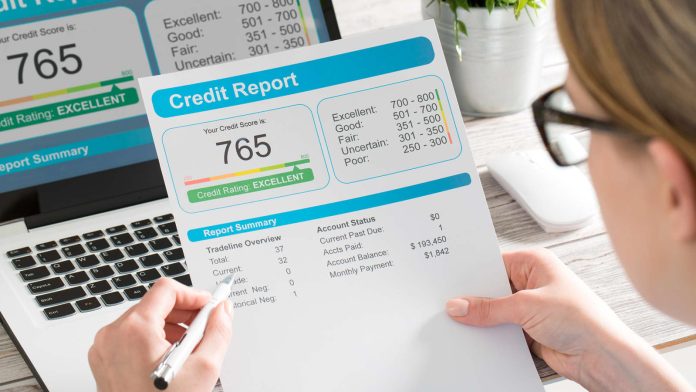A bad credit score will impact your life in unimaginable ways. It will stop you from reaching your dreams of owning a house, getting a car, or starting a business. Many factors affect your credit score, including bad credit car finance, missed payment dates, and bankruptcy filing in the past. Defaulting on past loans is another reason you have a bad credit score.
Should you be worried about it? Yes, very much so. Your credit score tells lenders if you can be trusted as a borrower. Lenders measure borrowers’ eligibility for a loan based on their credit scores. The lower your credit score, the less likely you’ll be approved for any loan. If you get approved for a loan with a bad credit score, brace for a high interest rate.
What Is a Good and Bad Credit Score?
Credit scores typically range between 300 (poor) and 850 (excellent). Credit institutions follow different formulas, but on average, scores above 720 are ideal, while scores below 630 are seen as problematic. Higher scores indicate good credit history, including paying dues on time, low credit use, and long credit history. Lenders are wary of low credit scores because these are risky borrowers. There’s a risk that they might not pay on time or not pay at all.
When consumers are aware of their credit scores, they will most likely try to correct them. They understand that good credit scores are essential for their plans. Those who aren’t aware of how credit scores impact their lives are likely to fall into the debt trap.
Review Credit Reports
Make a habit of reviewing credit reports. You can get a report from three major national credit bureaus: Equifax, Experian, and TransUnion. This is free once a year. Review the report and see which factors are hurting your score and history. You might not notice them, but some that affect your credit score are late payments, high credit card balances, collections, and judgments.
Pay Credit Balances Strategically
Do you know about credit utilization? It is the unused portion of your credit card. The higher the unused portion of the card, the better your credit score will become. As general advice, you should use less than 30% of your card’s limit. The lower your credit utilization rate is, the better.
A surefire way to bring your credit utilization down is to pay more than the minimum balance due of the card. You can do this in two ways: pay down the balance before the billing cycle ends or pay several times throughout the month to keep the balance low.
Ask for Higher Credit Limits
So, you cannot pay the balance in full yet. The perfect solution is to ask the credit card company to increase your limit. The balance stays the same, but the limit increases. This will improve your credit utilization rate. However, you can only request a higher credit limit if you prove that your financial situation has improved through a higher salary.
Pay Bills on Time
There is no worse thing to do on your credit report than not paying your bills on time. No matter what you do to improve your credit score, this will not be enough if you pay late. Late payments can stay on your credit report for more than seven years.
Did you miss a payment? Call the creditor immediately if you miss a payment for more than 30 days because this allows them to report it to the credit bureau. Promise to pay the due immediately and ask if they consider not reporting the missed payment.
Dispute Erroneous Entries in the Credit Report
You will be surprised to realize there could be a lot of erroneous entries in your credit report. This happens when you don’t check your credit report regularly. For example, you’ve already paid a debt, but it hasn’t been crossed out from your credit report. That could be why you have a lower-than-average credit score despite already clearing out most of your debts.
Someone else’s credit activity could have been mixed with yours. Make sure that all entries in your report are yours. If you see negative information that is not yours or is too old to be included in the report, write the credit bureau and have it slashed out of your report.
Remember that it takes some time to remove an entry from your credit report, so you’ll wait for a long time before seeing an improvement in your credit score. Most credit bureaus have 30 days to investigate a dispute. You should keep in touch with the bureau to monitor the process.
Remove Collections Accounts
A collections account is a serious negative mark on your credit report. It means you haven’t paid a debt to the point that the lender had to pass it to a collection agency. Talk with the collector if it is possible to settle the debt without them reporting it to the credit bureau. Of course, a plea doesn’t always work, but it’s worth a try to have a collection eliminated from your credit report.
This works fast to improve your credit score. Once the collection agency reports that the debt has been paid off, the credit bureau will remove it from your record. That will give you a higher credit score. If you haven’t settled the total amount of the debt, you can still ask the collection agency to report that you have negotiated the payment terms.
Conclusion
It is not impossible to improve your credit score. There are many ways to do it. However, the first thing you have to remember is not to let your credit score go bad. If you pay your dues on time, don’t spend more than you should, and don’t maximize your credit limit, you shouldn’t have a hard time maintaining your credit score above the average level and thereby become eligible for low-interest rates.
Disclaimer: This article contains sponsored marketing content. It is intended for promotional purposes and should not be considered as an endorsement or recommendation by our website. Readers are encouraged to conduct their own research and exercise their own judgment before making any decisions based on the information provided in this article.




































































